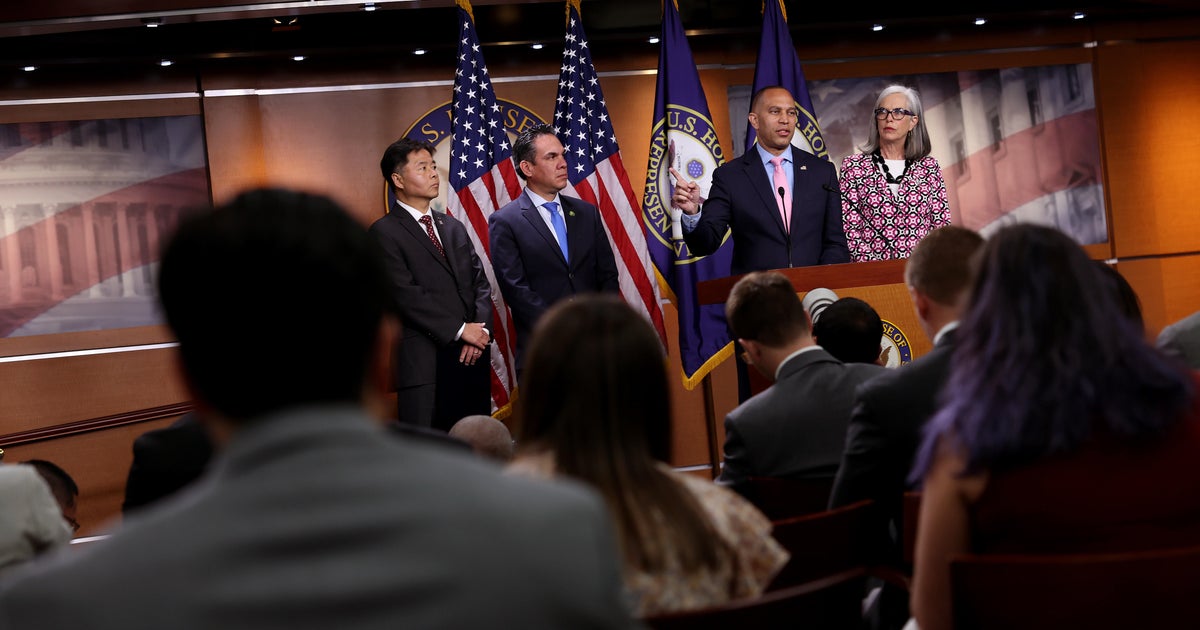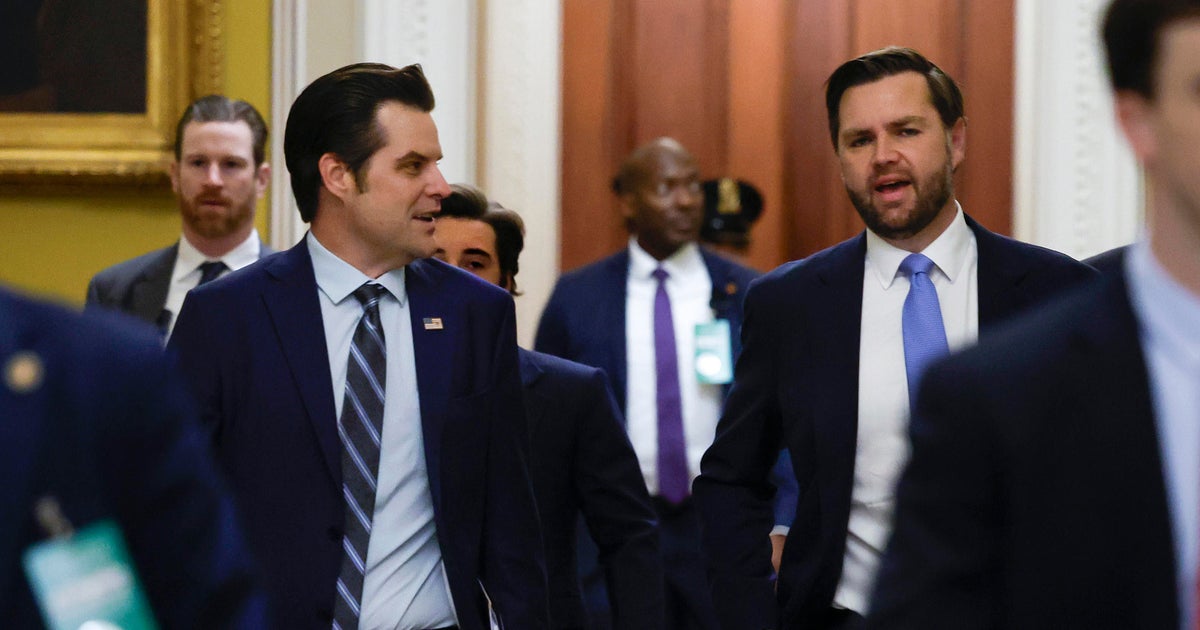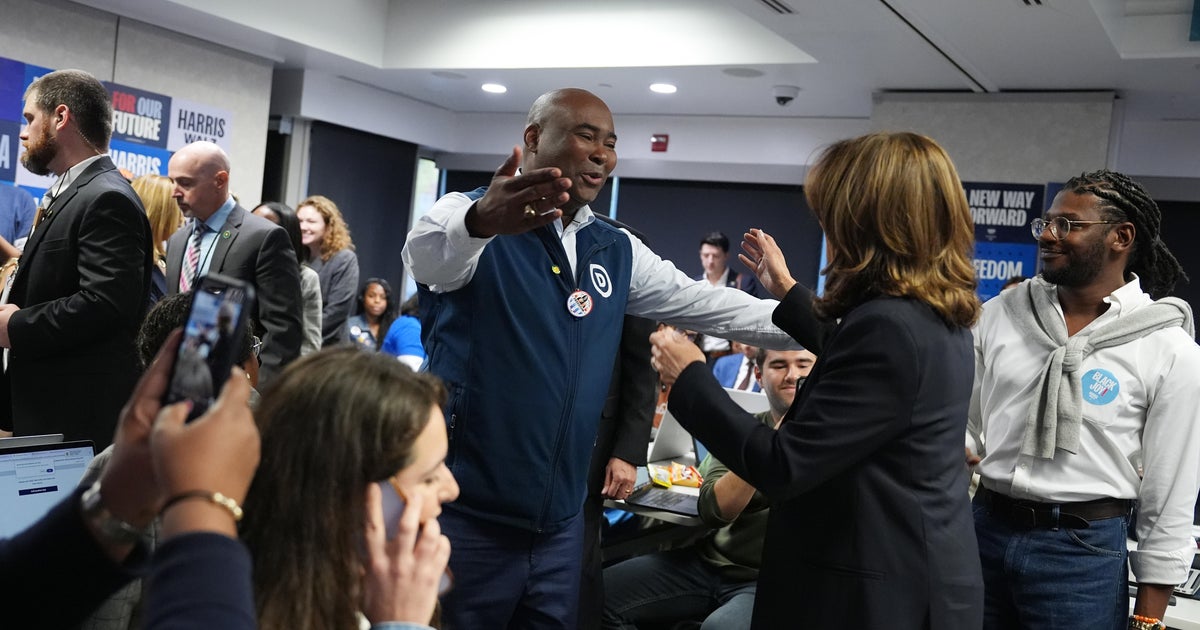Transcript: Rep. Adam Schiff on "Face the Nation," July 21, 2019
The following is a transcript of the interview with Democratic Rep. Adam Schiff of California that aired Sunday, July 21, 2019, on "Face the Nation."
MARGARET BRENNAN: We have to go now to the chairman of the House Intelligence Committee, Adam Schiff, who has been standing by. He joins us from Burbank this morning. Congressman, thank you for getting up early. You just heard Congresswoman Cheney there. When it comes to the issues that she says are about policy and not about race, not about politics, is that how you hear the comments- comments from the president this morning?
REPRESENTATIVE ADAM SCHIFF: No, absolutely not. I think, you know, tragically, the president has decided that racism is good politics. Racism is a good political strategy. There's a reason why he keeps returning to attacking these women of color and the rhetoric that he uses. The- the crowd's ugly, racist chant didn't materialize- materialize out of nothing. It came from the president's own tweet and words and incendiary rhetoric. This, of course, wasn't a one-off either. This was the same president who said they were good people on both sides of a neo-Nazi rally. This is who he is. And he thinks it's a winning political strategy. And God help us if it is. I think it's a very- it's a losing strategy. And I think we're going to see next year what a colossal losing strategy it is. And we're going to push back every time he engages in this kind of race-baiting racist rhetoric.
MARGARET BRENNAN: Do Democrats need to push back more within their own party, though? As the president has said, there are members of it, four of them in particular who he's focusing on, whose language he's characterized as reckless, as anti-Semitic, he has said. Do Democrats need to do more to be more careful about their own language?
REP. SCHIFF: I don't think there's really any equivalence here. We're not, you know, inciting crowds to chant, "Send them back." This is coming from the president. And yes, we have a big and diverse caucus and the political views of our caucus are as reflective of the country as they are of our caucus. But that is not in any way equivalent to the kind of racist rhetoric coming out of the White House. So look, I fully expect our members are going to be very aggressive out there. We have strong disagreements with this president, but we're focused on those disagreements when it comes to providing good paying jobs to people, issues like minimum wage, like trying to save access to health care while he wants to demonize four women of color and engage in this kind of bile. And, you know, it was such a tragedy last week, when we're celebrating the 50th anniversary of one of the greatest achievements in American history, in- in the history, frankly, of humankind, the landing on the moon, that we see one of the most tawdry moments in our history: the president engaging in this kind of behavior.
MARGARET BRENNAN: I want to ask you- because you this week will have a chance to ask questions of Robert Mueller, the special counsel, when he appears and answers questions about that 400 page report he turned in. He's already said he's not going to go beyond those 400-something pages. What is the purpose? What do you actually think you're going to learn?
REP. SCHIFF: Well, since most Americans, you know, in their busy lives haven't had the opportunity to read that report- and it's a pretty dry, prosecutorial work product- we want Bob Mueller to bring it to life, to talk about what's in that report. It's a pretty damning set of facts that involve a presidential campaign in a close race welcoming help from a hostile foreign power, not reporting it but eagerly embracing it, building it into their campaign strategy, lying about it to cover up, then obstructing an investigation into foreign interference again to try to cover up. That's a pretty damning set of facts that most American people are not familiar with and, of course, the president keeps on trying to deceive them about those facts. But who better to bring them to life than the man who did the investigation himself? We want the people to hear it directly from him, not filtered through Bill Barr, who had his own misleading characterization of it, but from the man who did the work himself.
MARGARET BRENNAN: Last year on this program, you said there was a very real prospect that on the day President Trump leaves office, that he would be indicted. The Justice Department, you said, would do that. This week the U.S. Attorney's Office in New York concluded its investigation into campaign finance and there were no charges there related to him. Does this prove your predictions wrong that this case is closed?
REP. SCHIFF: No, not at all. I mean, it's been clear, you know, from Bob Mueller that he felt and the Justice Department feels bound by this Office of Legal Counsel opinion that you can't indict a sitting president. But he is a- essentially unindicted co-conspirator. He's been identified as an Individual One, as the person who directed Michael Cohen to commit this fraudulent campaign scheme. And I assume that all this means, in terms of the Southern District of New York, is that the case will be reopened when he leaves office, providing the statute of limitations has not run, and the Justice Department will have to weigh whether to indict the former president. From my point of view, if the evidence supports that, he should be indicted. And it's certainly the view of the Justice Department's reflected in that indictment that Donald Trump was the one who coordinated and directed that illegal scheme. And why should Michael Cohen to go to jail, but the guy who did the direction and the coordination himself evade justice? He is not above the law. He may have a temporary reprieve while he occupies that office. But I think the Justice Department will have to seriously consider reopening the case if that's what it requires and indicting him when he leaves office.
MARGARET BRENNAN: You alleged this week that the Attorney General, Bill Barr, intervened to stop this investigation or may have done that. Do you have any evidence to support that?
REP. SCHIFF: Well I haven't alleged that he did that. What I have said is that Congress ought to find out and make sure there was no intervention by Bill Barr or Main Justice to bring about essentially a political closure of that case. Now, I don't know that that's the case but one of the concerns that I've had is when Bill Barr testified in the Senate, that he believes that the president could have made the Mueller investigation go away anytime he wanted if he thought it was unfair. It's logical to conclude he also feels the president can make any of these other cases go away if he deems them unfair--
MARGARET BRENNAN: Ok.
REP. SCHIFF: --and- and that is not our understanding, or anyone else's, of the law. The president is not above the law and we're going to do our oversight to make sure that none of these cases are made to go away to protect the president.
MARGARET BRENNAN: All right, Congressman thank you very much. We'll be back in a minute with Senator Cory Booker.



